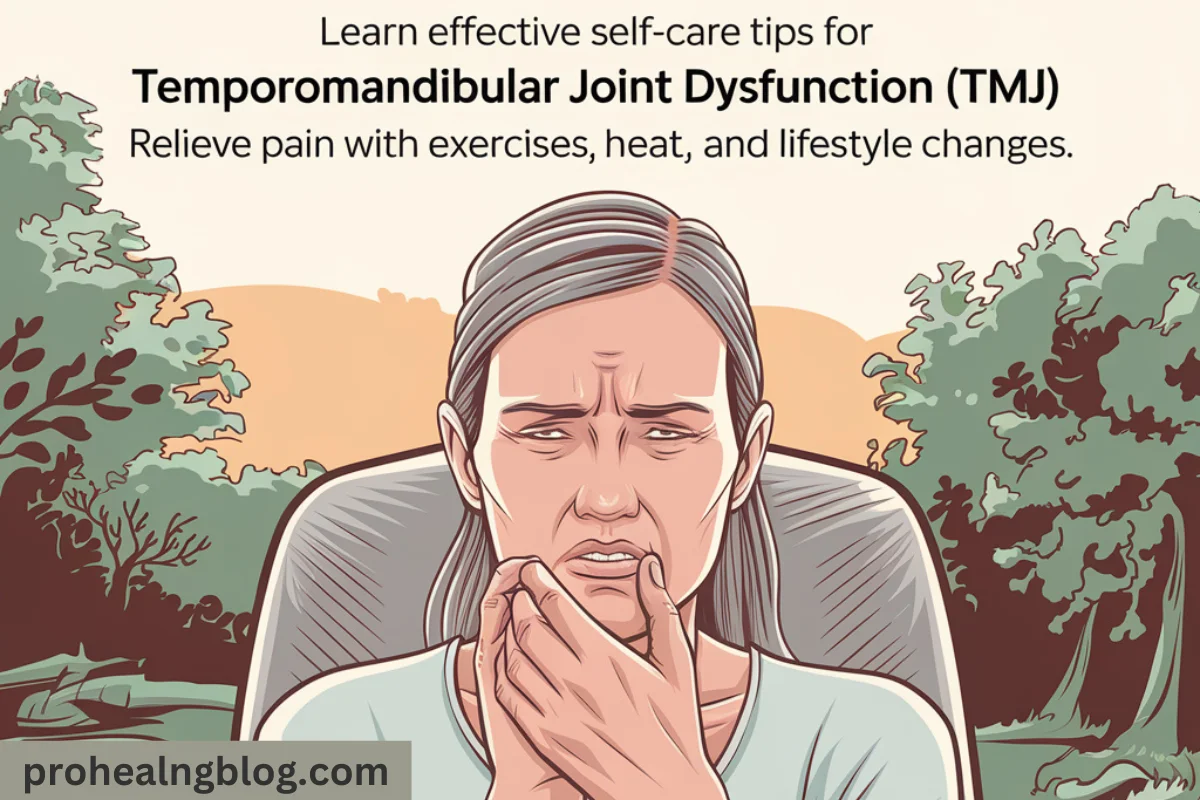Temporomandibular joint dysfunction, or TMJ disorder, affects millions of people worldwide. It can cause pain, discomfort, and difficulty in basic tasks like eating or speaking. While professional treatments are available for temporomandibular joint dysfunction self-care, self-care plays a vital role in managing symptoms and finding relief.
In this blog, we’ll dive into actionable self-care techniques, common questions about TMJ dysfunction, and ways to improve your quality of life.
What Is TMJ Dysfunction?
TMJ dysfunction occurs when there’s a problem with the jaw joint or surrounding muscles. This joint connects your jaw to your skull and allows you to chew, speak, and move your mouth.
See also: Tamarind: Health Benefits, Uses, and Side Effects
Common symptoms include:
- Jaw pain or tenderness
- Clicking or popping sounds
- Difficulty opening or closing the mouth
- Headaches
- Ear pain or fullness
If you experience these symptoms, self-care can help reduce discomfort and prevent worsening of the condition.
How Can I Fix My TMJ Myself?
Self-care is a key part of managing TMJ dysfunction. Here are effective strategies to try at home:
1. Practice Jaw Exercises
Gentle exercises strengthen the jaw muscles and improve mobility. Examples include:
- Resisted opening exercise: Place your thumb under your chin and gently push up while opening your mouth.
- Jaw relaxation exercise: Rest your tongue on the roof of your mouth while relaxing your jaw muscles.
2. Apply Heat or Cold Packs
- Heat: Relaxes tense muscles and improves blood flow. Apply a warm towel to your jaw for 15–20 minutes.
- Cold: Reduces swelling and numbs pain. Use an ice pack wrapped in a cloth for 10 minutes.
3. Massage the Jaw Area
Massaging the muscles around your jaw can relieve tension. Use your fingers to apply gentle circular motions to your temples and jawline.
4. Maintain Good Posture
Poor posture can strain your jaw muscles. Sit upright, keep your shoulders relaxed, and avoid leaning your head forward for long periods.
5. Avoid Overuse of the Jaw
Limit activities like chewing gum, biting nails, or eating hard foods. Stick to a soft diet when symptoms flare up.
Does TMJ Hurt Every Day?
TMJ pain can vary. Some people experience daily discomfort, while others have occasional symptoms. Triggers like stress, poor posture, or clenching the jaw can make pain worse.
Consistency in self-care practices can reduce the frequency and intensity of pain.
See Also: How to Become an Energy Healer: A Step-by-Step Guide
Is Heat Good for TMJ?
Yes, heat therapy is highly beneficial for TMJ dysfunction. It relaxes tight jaw muscles, reduces stiffness, and improves blood circulation. Use a warm towel or heating pad on the affected area for 15–20 minutes, twice a day.
How Do You Relieve TMJ Ear Pain?
Ear pain is a common symptom of TMJ dysfunction. Here’s how to manage it:
- Apply Heat or Cold: Use a warm or cold compress on the side of your face near the ear.
- Perform Jaw Exercises: Gentle stretches can reduce tension in the joint.
- Massage Around the Ear: Massage the area around your ear to ease muscle tightness.
- Practice Relaxation Techniques: Stress can worsen ear pain. Deep breathing or meditation can help.
Lifestyle Changes for TMJ Relief
Small lifestyle changes can make a big difference in managing TMJ dysfunction:
1. Manage Stress
Stress often leads to clenching or grinding the teeth, which worsens TMJ symptoms. Try stress-relief techniques like yoga, meditation, or journaling.
2. Use a Night Guard
If you grind your teeth at night, a custom night guard can protect your jaw and teeth.
3. Improve Sleep Position
Sleep on your back with a supportive pillow to reduce pressure on your jaw. Avoid sleeping on your stomach, which can misalign the jaw.
4. Limit Caffeine and Alcohol
Caffeine and alcohol can increase muscle tension and stress, aggravating TMJ symptoms.
Common Questions About TMJ Dysfunction
What Is TMJ Dysfunction Self-Care?
It involves techniques like jaw exercises, heat therapy, and stress management to relieve symptoms and improve jaw health.
Can TMJ Heal on Its Own?
Mild cases of TMJ dysfunction may improve with self-care. However, severe or persistent symptoms may require professional treatment.
When Should I See a Doctor?
If your pain is severe, lasts longer than a few weeks, or is accompanied by difficulty eating or speaking, consult a healthcare provider.
Foods to Eat with TMJ Dysfunction
A soft diet reduces strain on your jaw. Try these foods:
- Smoothies
- Mashed potatoes
- Soups
- Scrambled eggs
- Yogurt
Avoid hard, chewy, or crunchy foods like nuts, gum, and raw vegetables.
Is TMJ Dysfunction Permanent?
For most people, TMJ dysfunction is not permanent. With proper self-care and treatment, symptoms can significantly improve or disappear.
TMJ Dysfunction Myths Debunked
Myth: TMJ dysfunction only affects the jaw.
Fact: It can cause headaches, ear pain, and even neck pain.
Myth: Surgery is the only solution.
Fact: Most cases improve with non-surgical treatments and self-care.
Myth: TMJ dysfunction is rare.
Fact: It’s more common than you think, especially among women aged 20–40.
See also: Royal Honey: Nature’s Nutrient-Rich Golden Elixir
Conclusion
Temporomandibular joint dysfunction can disrupt your daily life, but self-care offers powerful tools for relief. By practicing jaw exercises, using heat or cold therapy, managing stress, and maintaining good posture, you can reduce pain and improve function.
Remember, consistency is key. If your symptoms persist or worsen, consult a healthcare provider for personalized treatment.
Take charge of your jaw health today and enjoy a pain-free future!






